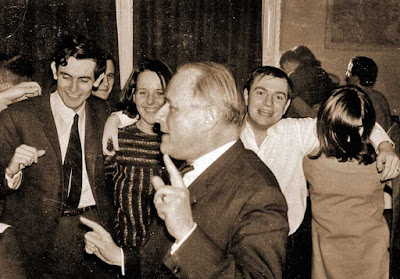Reflections on a visit to Brugge (Bruges) Belgium for the 50th anniversary of the Comenius Promotion in the College of Europe in 1967/68
HENDRIK BRUGMANS
Hendrik Brugmans was Rector of the College of Europe in Brugge from its foundation in 1950 until his retirement in 1972. Over these years he left the stamp of his personality on the College.
He was born in Amsterdam in 1906 and was one of the leading intellectuals of the European Movement. His book L'Idée Européenne was a seminal text for students of the College.
He retired in 1972 and lived in Brugge until his death in 1997 at 90 years of age.
The cause of European Integration was his life's mission and he infused it in many of his students who went on to work in the European Institutions and in the European Movement in their home countries.
He took a paternal interest in his students and many's the party with song and, of course, discussion that was held in his room. Though he could sometimes be a bit aloof he participated actively in the student life of the College as the photo above testifies.
The year after his death the College honoured him by naming that academic year the Brugmans promotion and by creating an annual lecture named after him. One of the buildings of the new Verversdijk site of the College in Brugge is also named after him.
When passing through the College building on the Dijver recently I noticed a bust on top of a cupboard in a relatively dark area. It was near a statue of Fr. Verlaye, one of the founders of the college. As you will see from the photo above, it is a flattering likeness of how he looked during his Rectorship, reminiscent probably of a younger Brugmans.
It would be nice if both these works were displayed more prominently on the College premises, perhaps in the reception area.
While the College has much to be grateful to the city of Brugge for, the reverse also holds true and in recent years the City has named a street after him down by the station. Right order.
And, while I'm at it, it would be nice if someone took it upon themselves to flesh out his Wiki page, covering in particular his professional and personal life in the years before the College of Europe.
Subscribe to:
Post Comments (Atom)




No comments:
Post a Comment